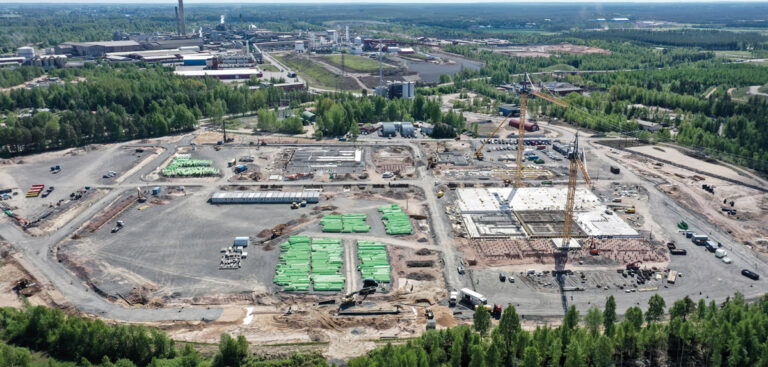Despite the challenges imposed by the ongoing Covid-19 pandemic in Europe, battery manufacturer BASF has begun construction of a new plant in Harjavalta (above), Finland for production of precursor cathode active material, while also securing permission to start building a cathode active material plant in Schwarzheide, Germany.
The company remains steadfast in its commitment to provide a reliable and sustainable local supply to cell producers and OEM customers in Europe. The new battery materials plants are part of BASF’s goal to be the leading global supplier of high-energy density CAM for the automotive industry.
Initially, the factories will have the capacity to supply around 400,000 full electric vehicles per year with BASF battery materials. Furthermore, the company has taken extensive steps to reduce the carbon footprint of its operations.
Dr Peter Schuhmacher, president of BASF’s catalyst division, said, “We are determined to provide innovative high-performance products with a minimized CO2 footprint along the battery value chain.
“Through regional production in combination with renewable energy sources as well as use of energy efficient and proprietary process technologies in our new plants in Europe, we are able to reduce CO2 footprint significantly – by around 30% compared with conventional industry standard on the market.”


